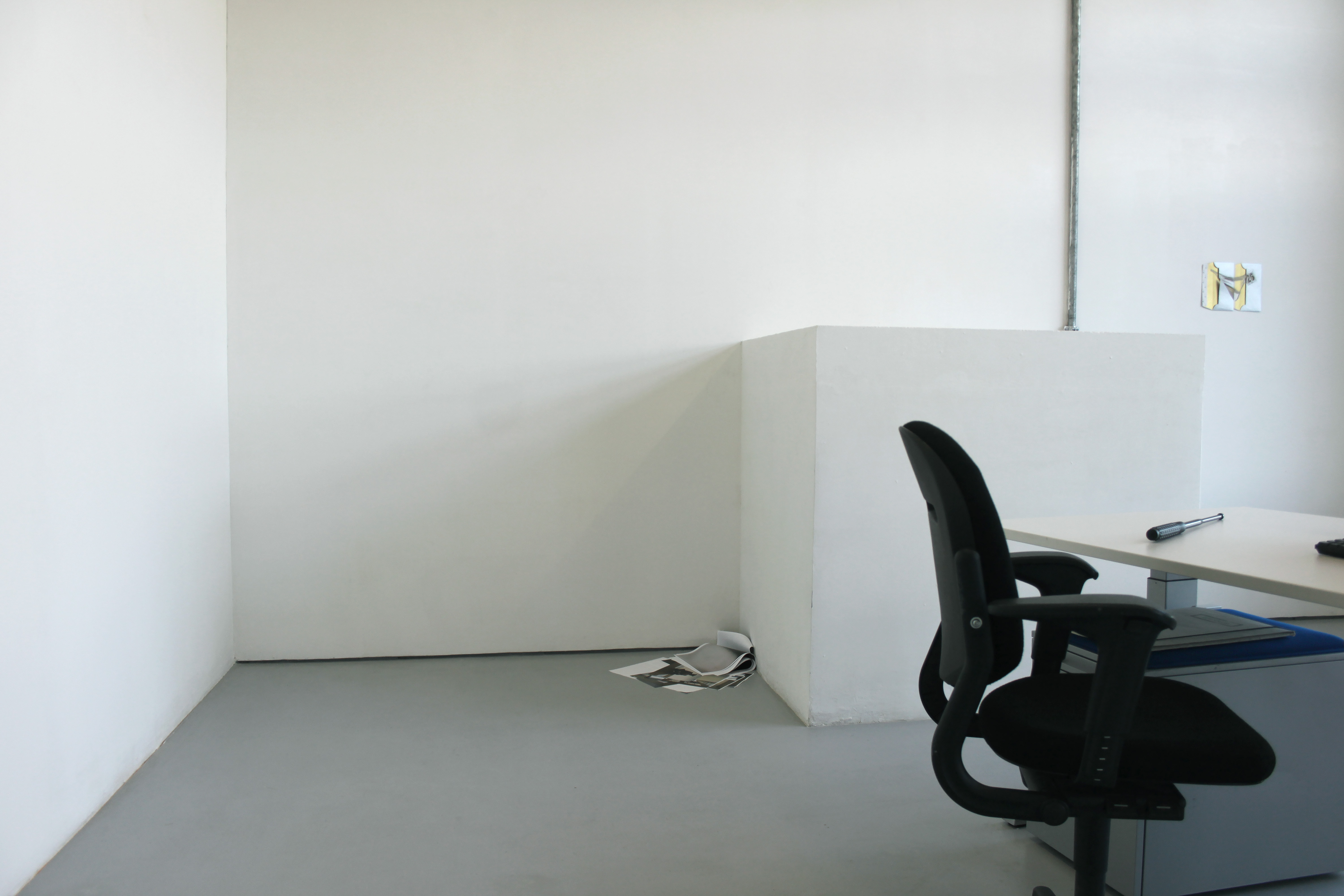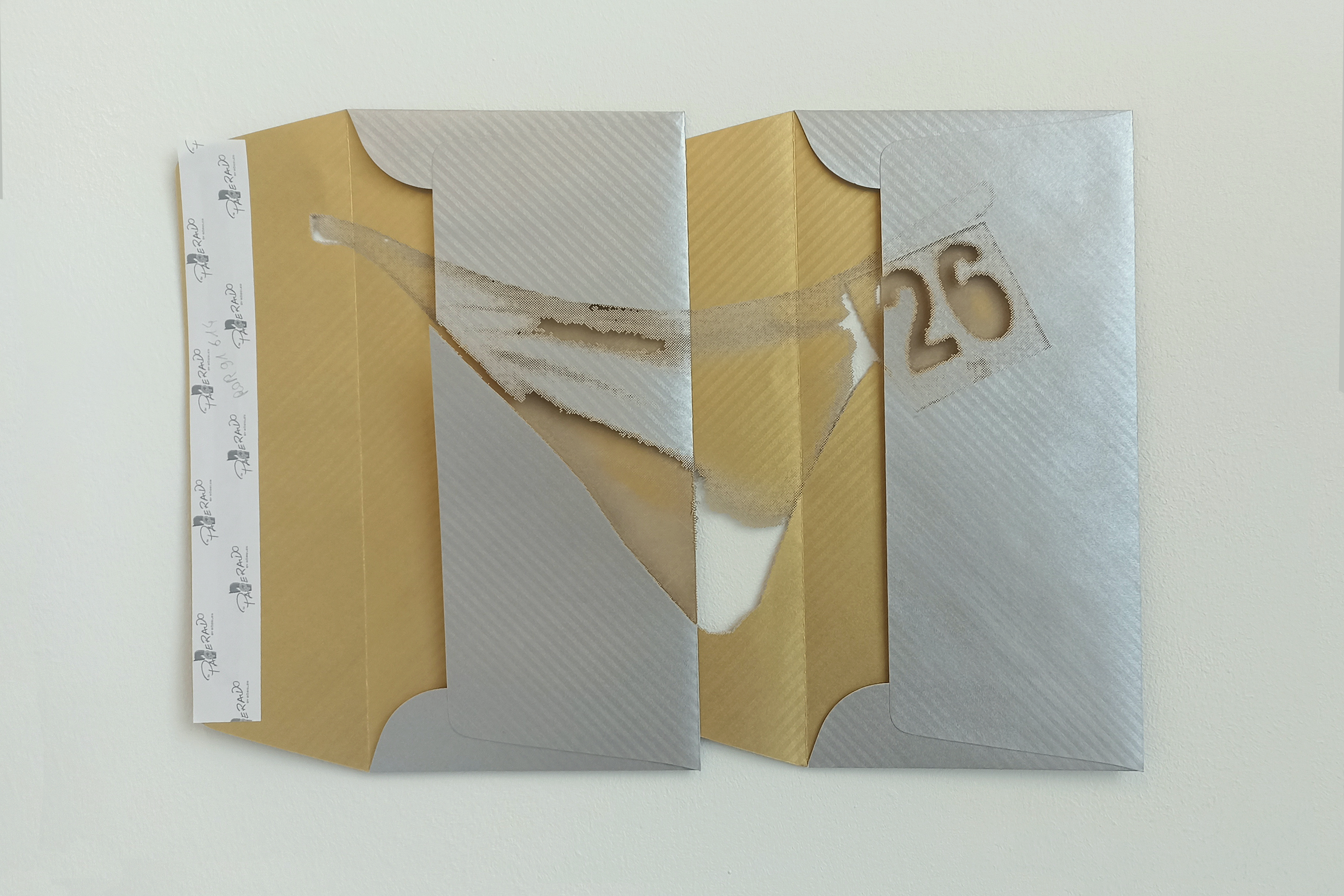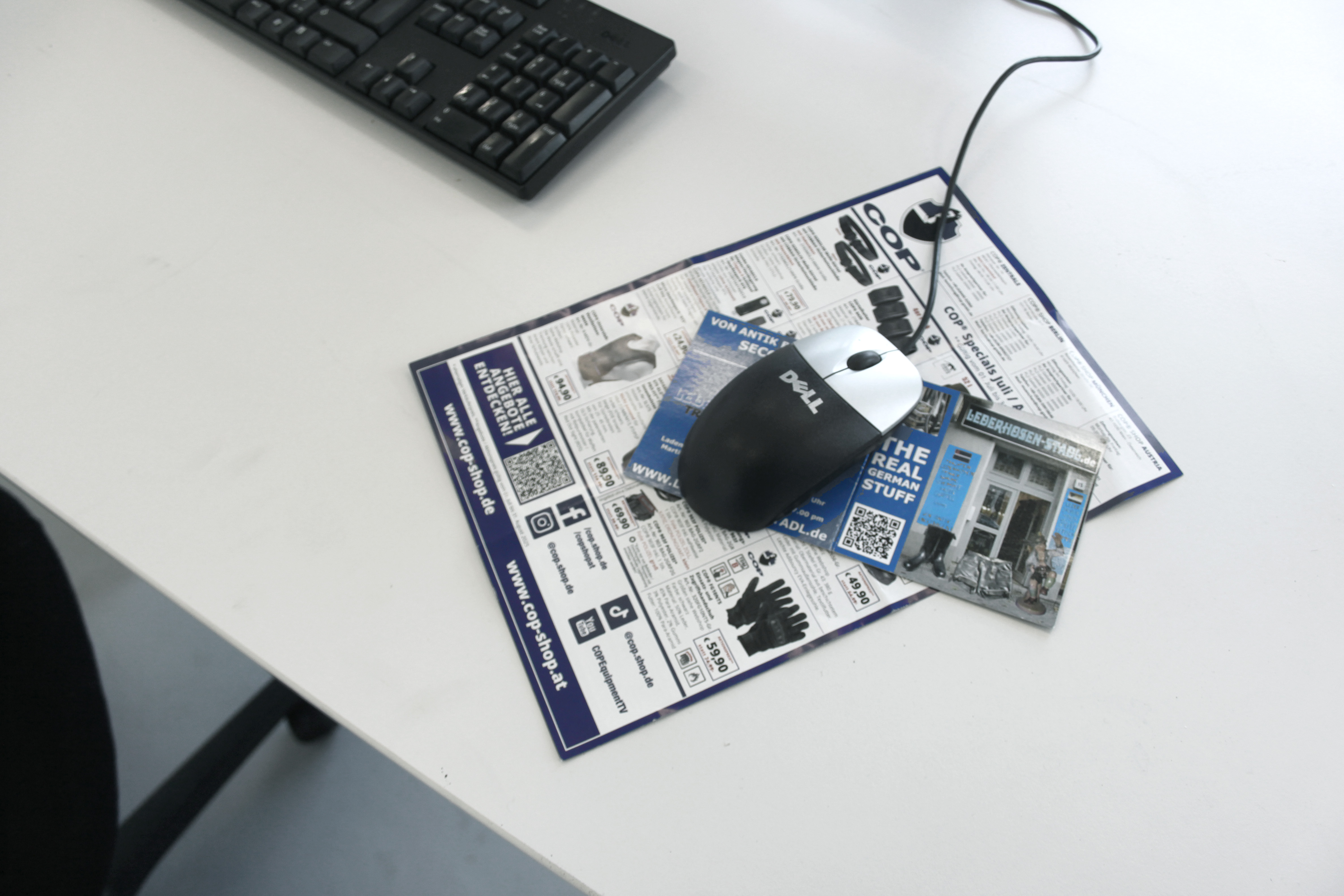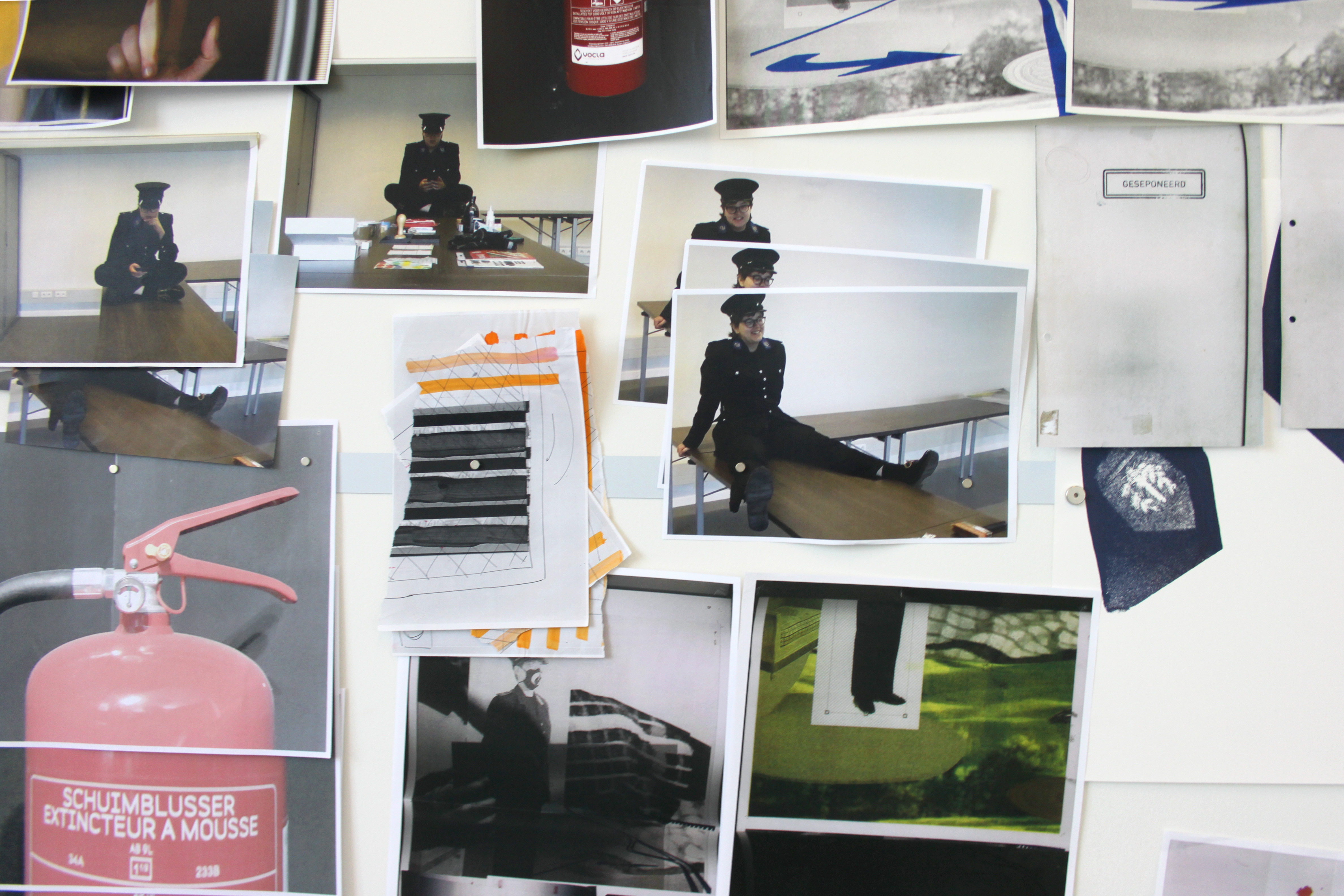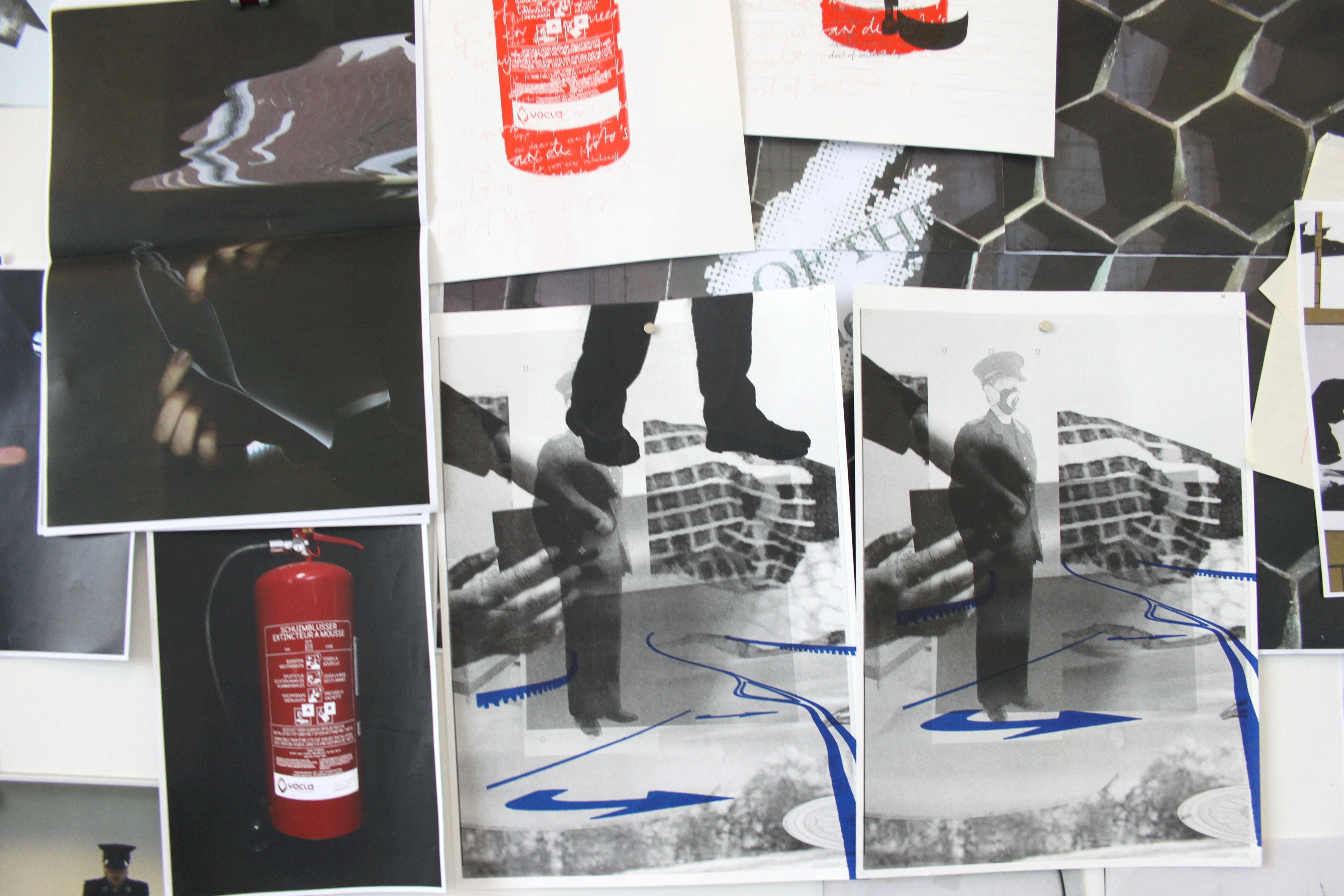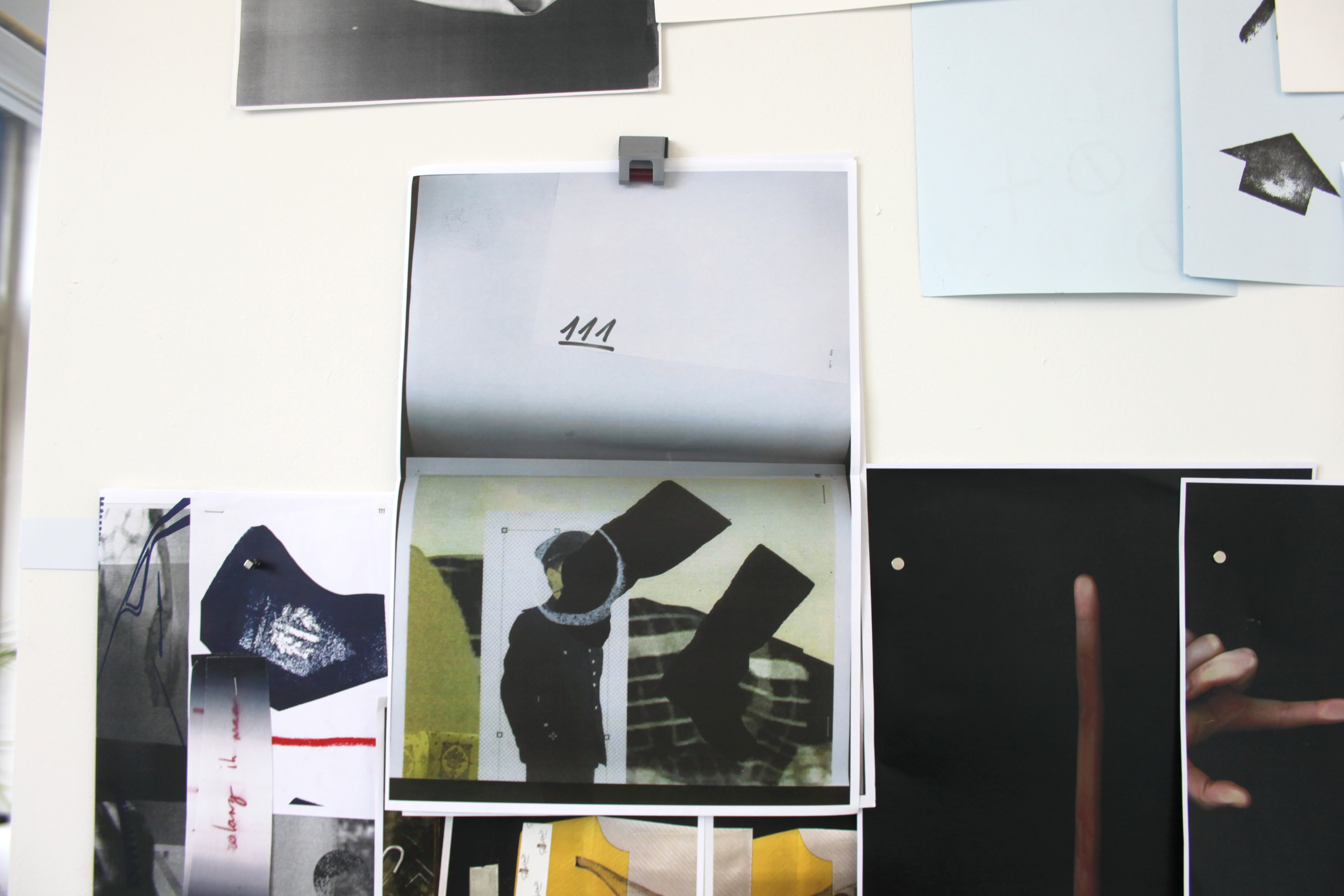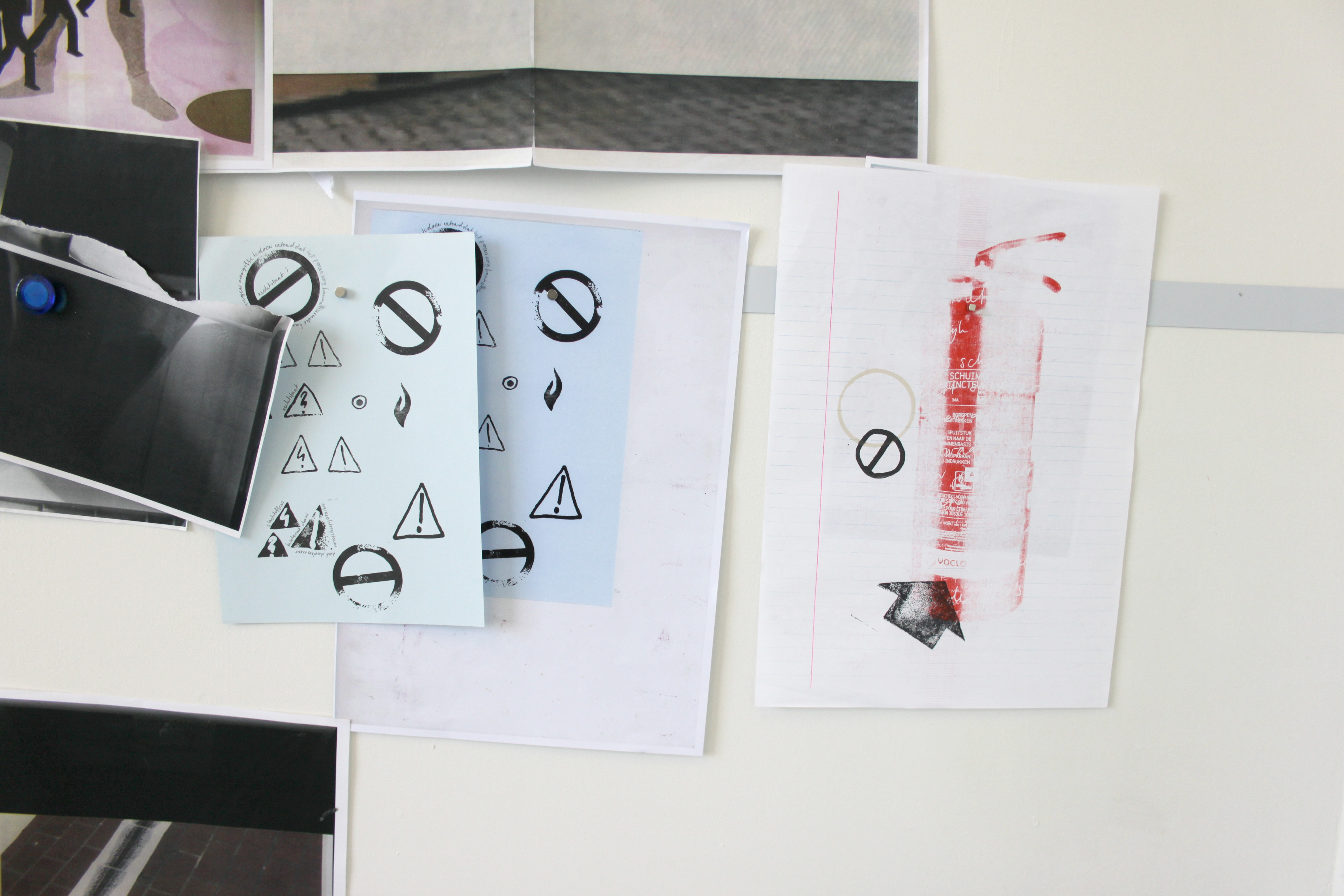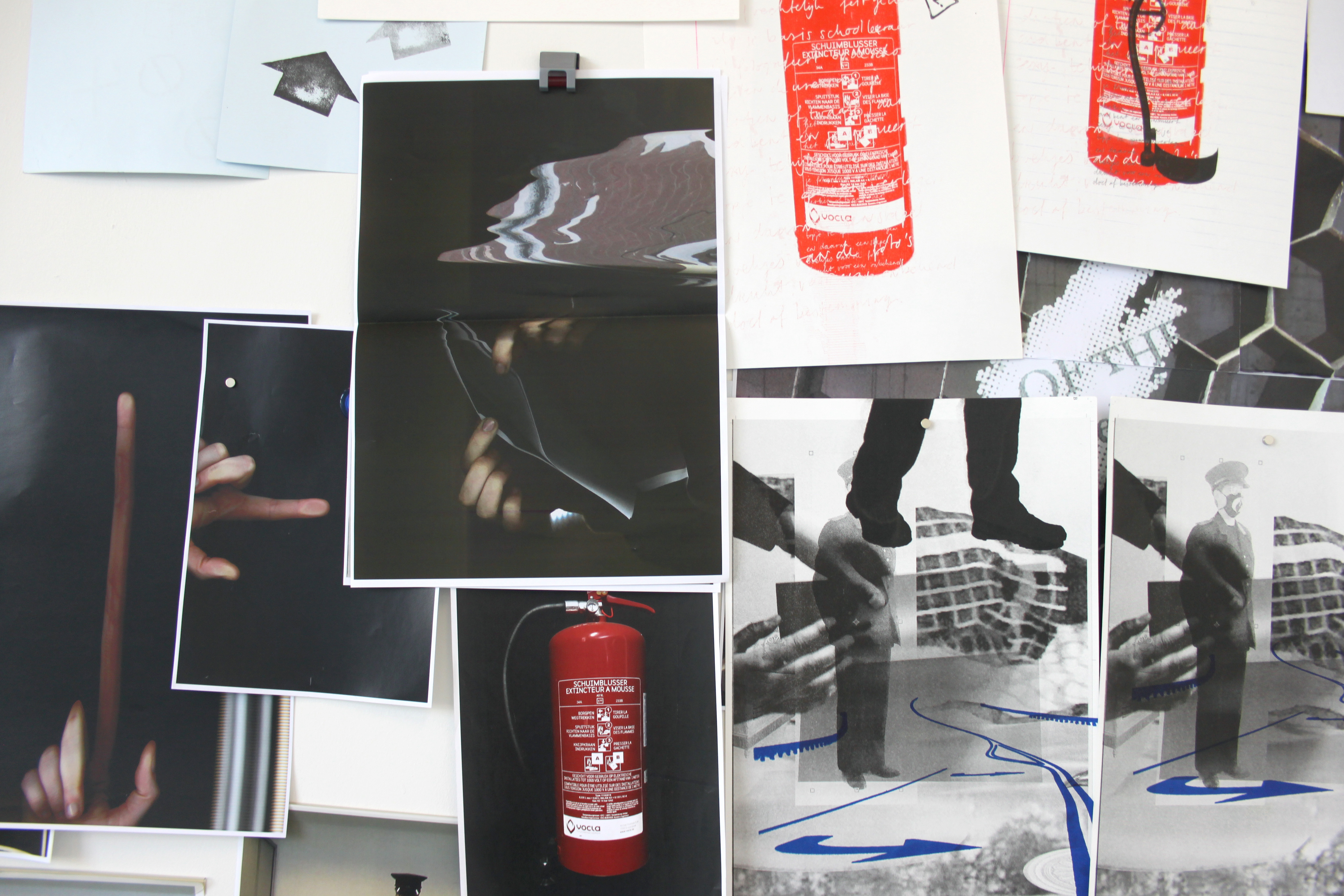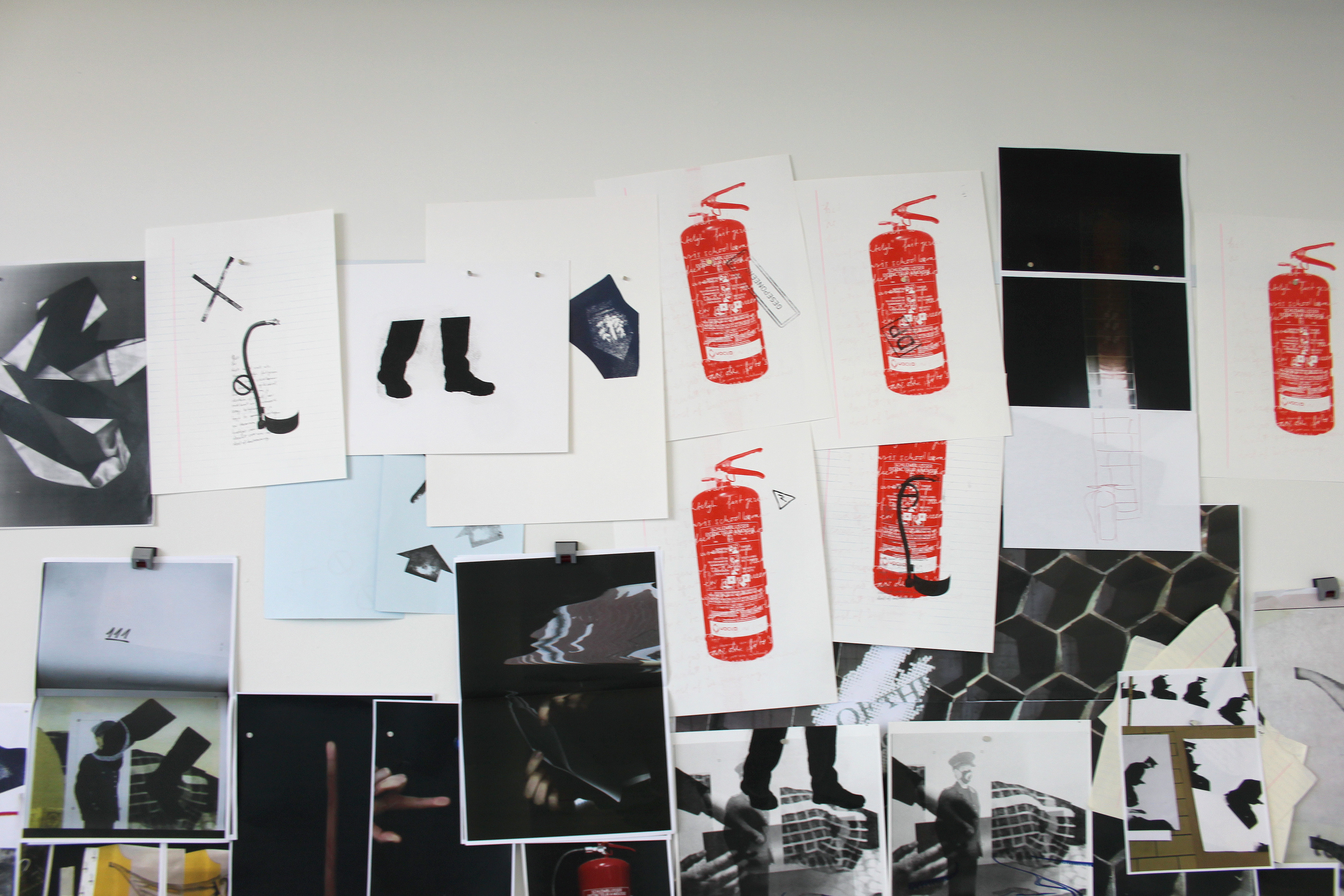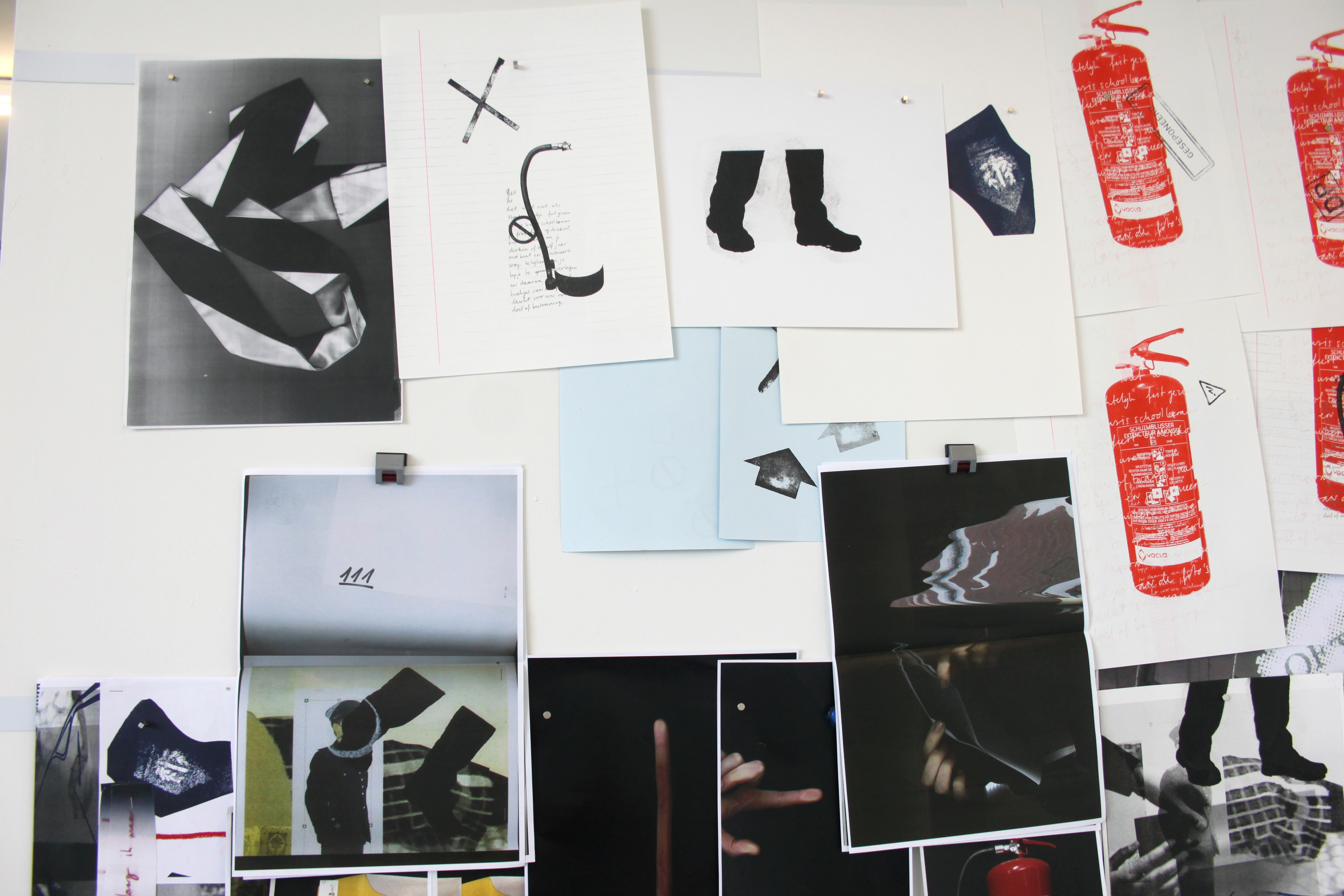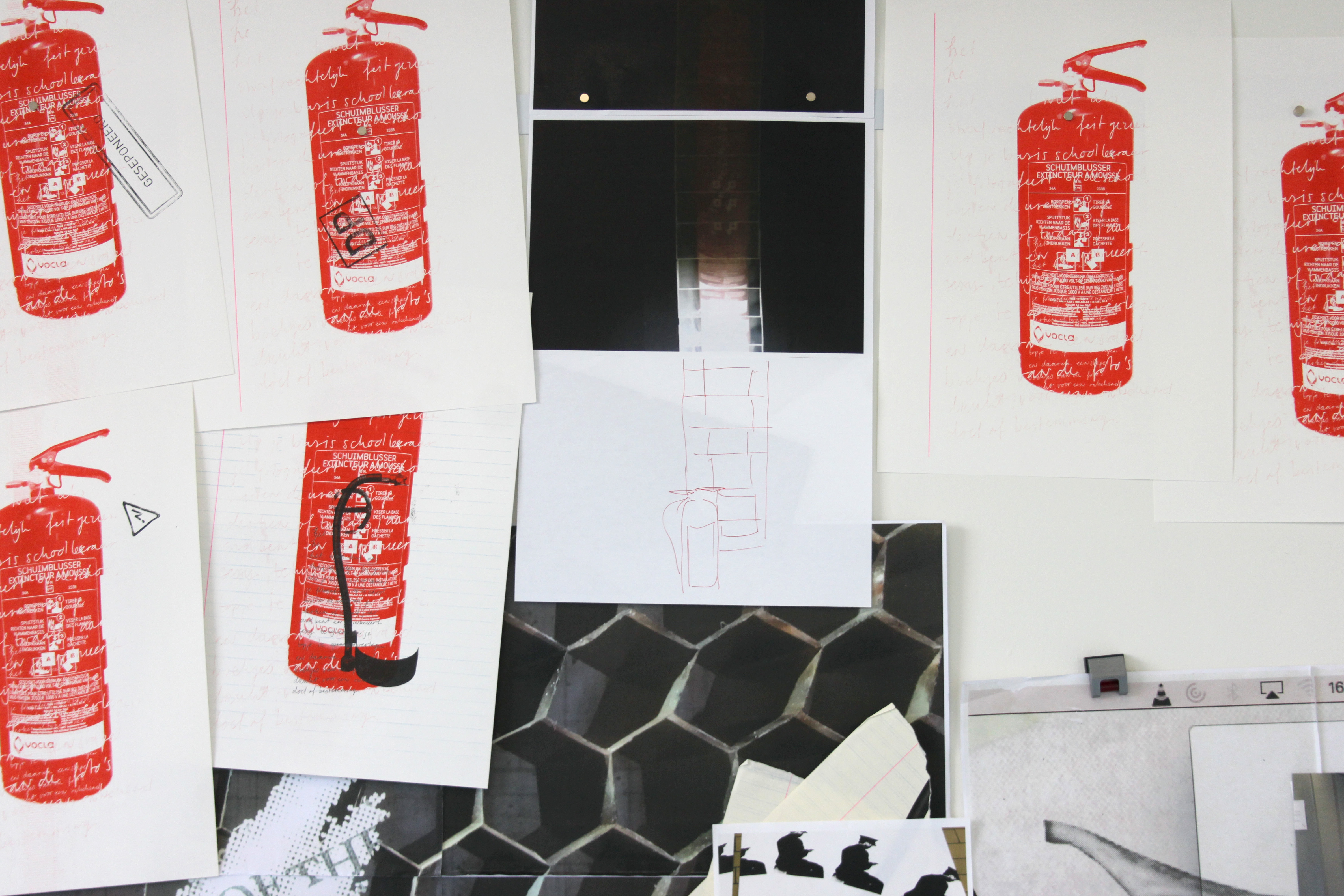Waakzaam en Dienstbaar
Jivan van der Ende
Waakzaam en Dienstbaar
Curated by Bas Hendrikx
21 SEPT - 26 OCT 2025
P///AKT, Amsterdam
A solo
exhibition with performances and new catalogue ‘Geseponeerd’ by the artist in collaboration with Elena Op ‘t Eynde.
The exhibition, publication and performances were financially supported by Mondriaanfonds, Cultuurfonds, Stadsdeel Oost Amsterdam, AFK and Flanders State of the Arts

“A play between self-determination and submission. That is the lens through which we might view Jivan van der Ende’s work, developed in collaboration with (or was it...?) the police officer. The exhibition Waakzaam en Dienstbaar (Vigilant and Dutiful) builds on Jivan van der Ende’s collaboration with Elena Op ’t Eynde. A collaboration that resulted in theaccompanying publication Geseponeerd (2025), for which control is handed over. Quite literally. The artist has created a protocol that grants full access to her archives to De Politieman (The Policeman), a character embodied by graphic designer Elena Op ’t Eynde. The archive—a vast image bank comprising years of print production—is thereby subjected to the preferences, desires, and whims of someone else. Although chosen by the artist, responsibility is nevertheless ceded.
In previous work, Jivan van der Ende explored archetypes such as firefighters, bodybuilders, and more recently, the police officer. De Politieman, always referred to in this gendered form, plays a double role: both authority figure and designer. These two functions blur; the officer is, in this case, also the editor. The relationship between artist and designer is grounded in trust—in consent. It is this trust that, in turn, gives the officer the power, the authority, to edit, censor, and manipulate the printed material. A veto, with all the consequences that entails.
For Waakzaam en Dienstbaar, Jivan van der Ende explores the friction between agency and submission. A performative process unfolds in which artistic material is subjected to editorial principles. And that process—an artistic process—can never be purely rational. This, essentially, is a protocol, a set of instructions. These are embodied by De Politieman, whose authority is associated with the archetype symbolised by the uniform. The protocol grants Elena op ’t Eynde more than mere symbolic power, but actual control over the work. The protocol is clear, yet the outcome is unknowable.
Van der Ende’s title borrows from the Dutch police slogan waakzaam en dienstbaar—vigilant and dutiful. The word dienstbaar (dutiful) is particularly loaded: dutiful to whom, to what, and to what end? On the surface, it suggests service to society. Yet in recent years, this ‘duty’ has increasingly come under scrutiny. In a climate where police authority is more contested than ever, such duty becomes ambivalent: is it protection, or is it oppression? And who has access to protection? It raises questions about accountability, but also about manipulation, subjugation, and the display of power. The public call to end police violence stands in stark contrast to the fetishisation of authoritarian force of far-right politicians. By playing with the aesthetics and codes of authoritarianism, Jivan van der Ende questions the underlying structures of power and control and asks who, ultimately, is in control? The one who serves, or the one who is served?” -Bas Hendrikx


